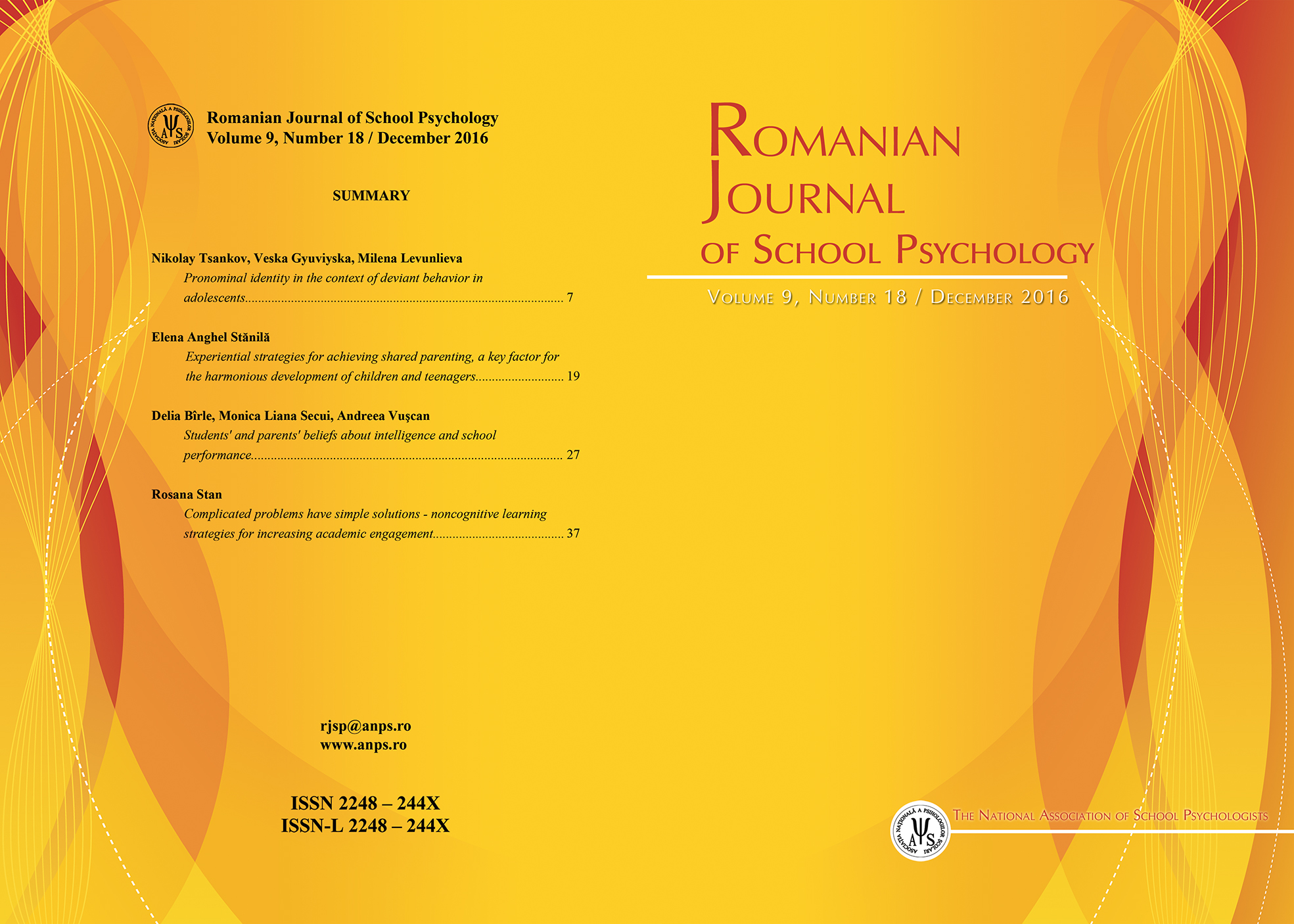Experiential strategies for achieving shared parenting, a key factor for the harmonious development of children and teenagers
Experiential strategies for achieving shared parenting, a key factor for the harmonious development of children and teenagers
Author(s): Elena Anghel-StănilăSubject(s): Psychology
Published by: Editura Universitatii din Oradea
Keywords: shared parenting; children; adolescents; parents; personal development; experiential strategies
Summary/Abstract: Shared parenting is a concept which reflects a relationship of support between parents for the stable up-bringing of their youngsters and teenagers. At this point, a series of risks can occur such as: the poor coordination between parents (double messages, inadequate approaches), a state of hesitation from one of the parents, the lack of cooperation and affection, and the avoidance of various problematic situations. The result of these dysfunctions in shared parenting is reflected in the well-being of the child or adolescent – s/he will manifest social difficulties, therefore the child will need to undergo therapy or counseling. Therefore, preventing these dysfunctions leads to an adequate coordination between the two parents so that they learn to communicate and agree how to provide education and development for their child. The experiential learning techniques, which are highly interactive, lead to the understanding of the origin of certain parental-filial interaction patterns. They also help adapt these patterns to the individual needs of the child and harmonize them with the patterns of the other parents in order to create shared paternity.
Journal: Romanian Journal of School Psychology
- Issue Year: 9/2016
- Issue No: 18
- Page Range: 19-26
- Page Count: 8
- Language: English
- Content File-PDF

